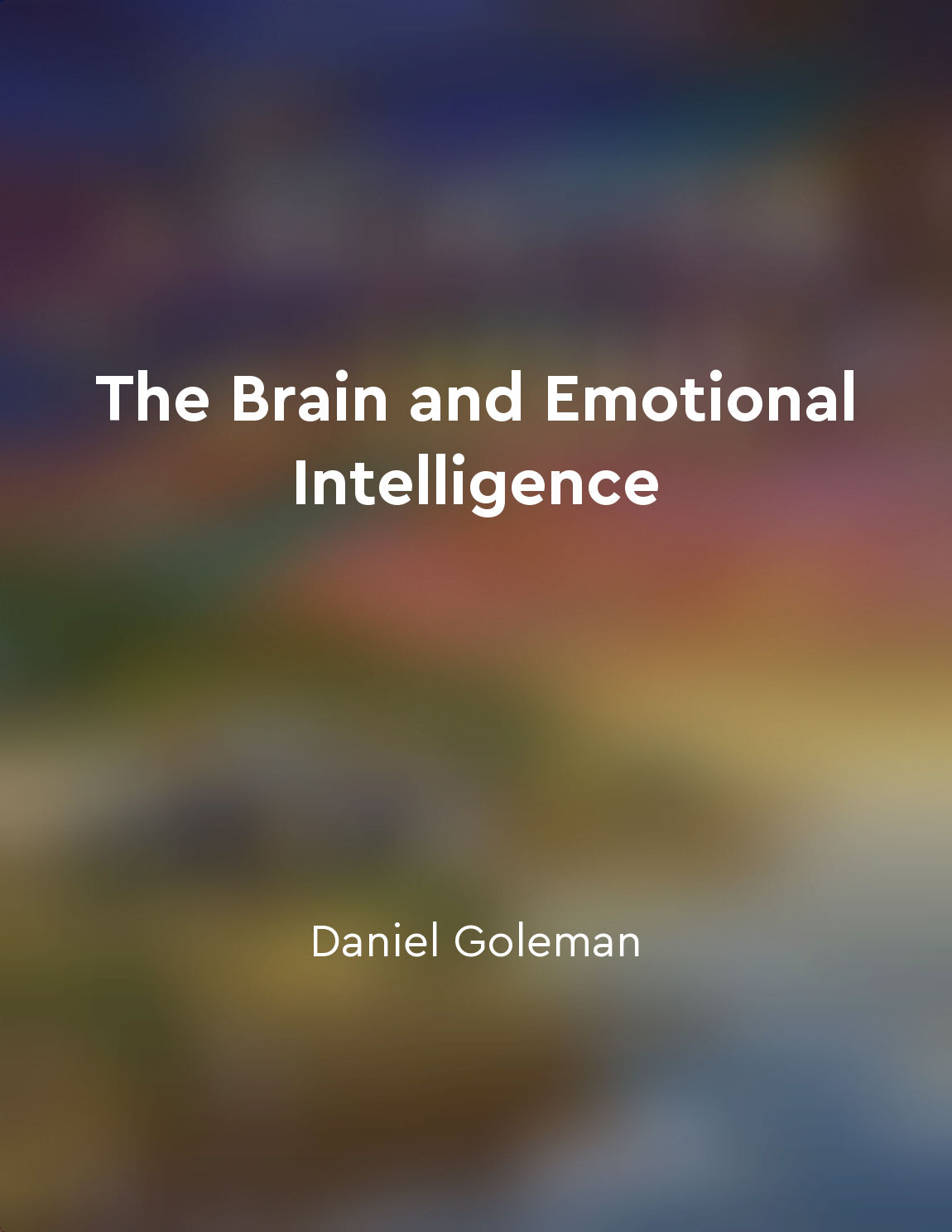The brain is responsible for thoughts, emotions, and behavior from "summary" of Human Brain Coloring Workbook by Kapil Gupta
The brain is a complex organ that plays a crucial role in shaping our thoughts, emotions, and behavior. It is responsible for processing information from our senses, making decisions, and controlling our actions. When we experience something, our brain interprets the sensory input and produces thoughts and emotions in response. These thoughts and emotions can influence our behavior, leading us to take certain actions based on how we feel and what we think. Different parts of the brain are involved in various aspects of cognition, emotion, and behavior. For example, the prefrontal cortex is responsible for decision-making and impulse control, while the amygdala plays a key role in processing emotions such as fear and pleasure. Neurotransmitters, chemicals that transmit signals between neurons, also play a crucial role in shaping our thoughts, emotions, and behavior. For instance, dopamine is involved in feelings of reward and motivation, while serotonin is linked to mood regulation. Damage or dysfunction in certain areas of the brain can lead to changes in cognition, emotion, and behavior. For example, damage to the prefrontal cortex can result in poor decision-making and impulsivity, while dysfunction in the amygdala can lead to difficulties in regulating emotions.- The brain acts as a command center for our thoughts, emotions, and behavior, orchestrating complex processes that shape who we are and how we interact with the world around us.
Similar Posts

Your brain is a lifelong companion, nurture it well
Your brain is a powerful ally that will stay with you for your entire life. It is always there, working tirelessly behind the s...
Practicing gratitude can enhance brain energy levels
Practicing gratitude is a powerful tool that can have a significant impact on our brain energy levels. When we take the time to...
Cultivate resilience through healthy coping strategies
To help children build resilience, it is essential to encourage the development of healthy coping strategies. These coping stra...
Trauma survivors may have a heightened startle response
Trauma survivors often have a heightened startle response. When a person has experienced trauma, their nervous system becomes h...
Mindful lovemaking can lead to profound spiritual experiences
Mindful lovemaking involves being fully present during intimate moments with a partner. This means focusing on sensations, emot...
Quantum fluctuations led to early universe's expansion
According to the theory of quantum mechanics, particles can appear and disappear in a vacuum due to quantum fluctuations. In th...
Bridging the gap between Buddhism and neuroscience
The intersection of Buddhism and neuroscience is a fascinating area of study that has the potential to offer profound insights ...
Repetition strengthens neural pathways for habits
The brain is wired to seek rewards, and it uses neural pathways to remember where rewards are found. When you get a reward, you...

The benefits of emotional intelligence extend beyond the individual to society as a whole
The impact of emotional intelligence reaches far beyond the individual level, influencing the fabric of society at large. When ...

Childbirth is a unique experience for each individual
The process of childbirth is a highly individual experience, varying greatly from one person to another. This uniqueness is inf...

